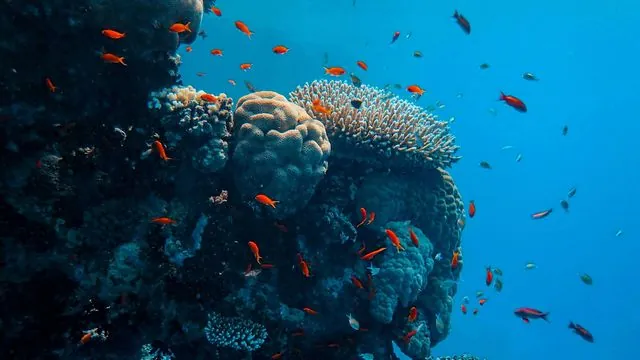
Ancient Ocean Acidification During the Paleocene-Eocene: A Stark Warning for Our Climate
2025-01-02
Author: Daniel
A groundbreaking study from a research team led by Prof. Li Mingsong at Peking University has provided pivotal insights into the Paleocene-Eocene Thermal Maximum (PETM) and its dramatic consequences on ocean chemistry. This important research, published in Nature Geoscience, comprehensively reconstructs the phenomenon of ocean acidification during this ancient climate event and draws alarming parallels to the current climate crisis fueled by human-induced CO2 emissions.
Why This Research is Crucial
The PETM occurred around 56 million years ago and marked a significant carbon release event that triggered swift global warming and substantial ocean acidification. This study accentuates the importance of understanding these historical climate events as they may offer foresight into contemporary challenges. Researchers stress that the urgency to combat rising human-generated CO2 emissions has never been more critical, particularly for vulnerable marine ecosystems in high-risk areas like the Arctic.
Key Findings of the Study
1. Ocean Acidification Revelations: The research team utilized paleoclimate data assimilation techniques to merge proxy data and Earth system model simulations, leading to a revised understanding of oceanic carbonate chemistry during the PETM. They established that atmospheric CO2 levels surged from 890 ppm to an alarming 1980 ppm during this period. Interestingly, regions with high latitudes experienced the worst acidification effects, mirroring the troubling trends unfolding in today’s Arctic oceans.
2. Overview of the PETM: Triggered by a massive influx of carbon, the PETM caused rapid temperature increases and significant ecological disruptions. The ocean’s pH level plummeted by 0.46 units, from 7.91 to 7.45, resulting in severe biological disruptions that echo current environmental concerns.
3. Impact on Marine Biodiversity: This event profoundly affected marine life, leading to the extinction of approximately 30%-50% of benthic foraminifera. The study highlights the extensive loss of marine biodiversity during this period, drawing a stark comparison to what many fear could occur today.
4. Alarm for Modern Climate Change: Emissions of CO2 today are escalating at a pace that outstrips the rates seen during the PETM, placing marine ecosystems at grave risk. The findings underscore the critical need for immediate and actionable climate strategies to mitigate these threats and ensure the protection of our oceans.
Conclusion
The research by Prof. Li and his team offers a compelling historical mirror for today's climate crisis. It urges policymakers and the global community to recognize the lessons from the distant past in combatting our current trajectory. As ocean acidification threatens to alter marine ecosystems irreversibly, now is the time for definitive climate action to prevent repeating history. The stakes couldn't be higher — will we heed the ancient warnings before it's too late?

 Brasil (PT)
Brasil (PT)
 Canada (EN)
Canada (EN)
 Chile (ES)
Chile (ES)
 Česko (CS)
Česko (CS)
 대한민국 (KO)
대한민국 (KO)
 España (ES)
España (ES)
 France (FR)
France (FR)
 Hong Kong (EN)
Hong Kong (EN)
 Italia (IT)
Italia (IT)
 日本 (JA)
日本 (JA)
 Magyarország (HU)
Magyarország (HU)
 Norge (NO)
Norge (NO)
 Polska (PL)
Polska (PL)
 Schweiz (DE)
Schweiz (DE)
 Singapore (EN)
Singapore (EN)
 Sverige (SV)
Sverige (SV)
 Suomi (FI)
Suomi (FI)
 Türkiye (TR)
Türkiye (TR)
 الإمارات العربية المتحدة (AR)
الإمارات العربية المتحدة (AR)